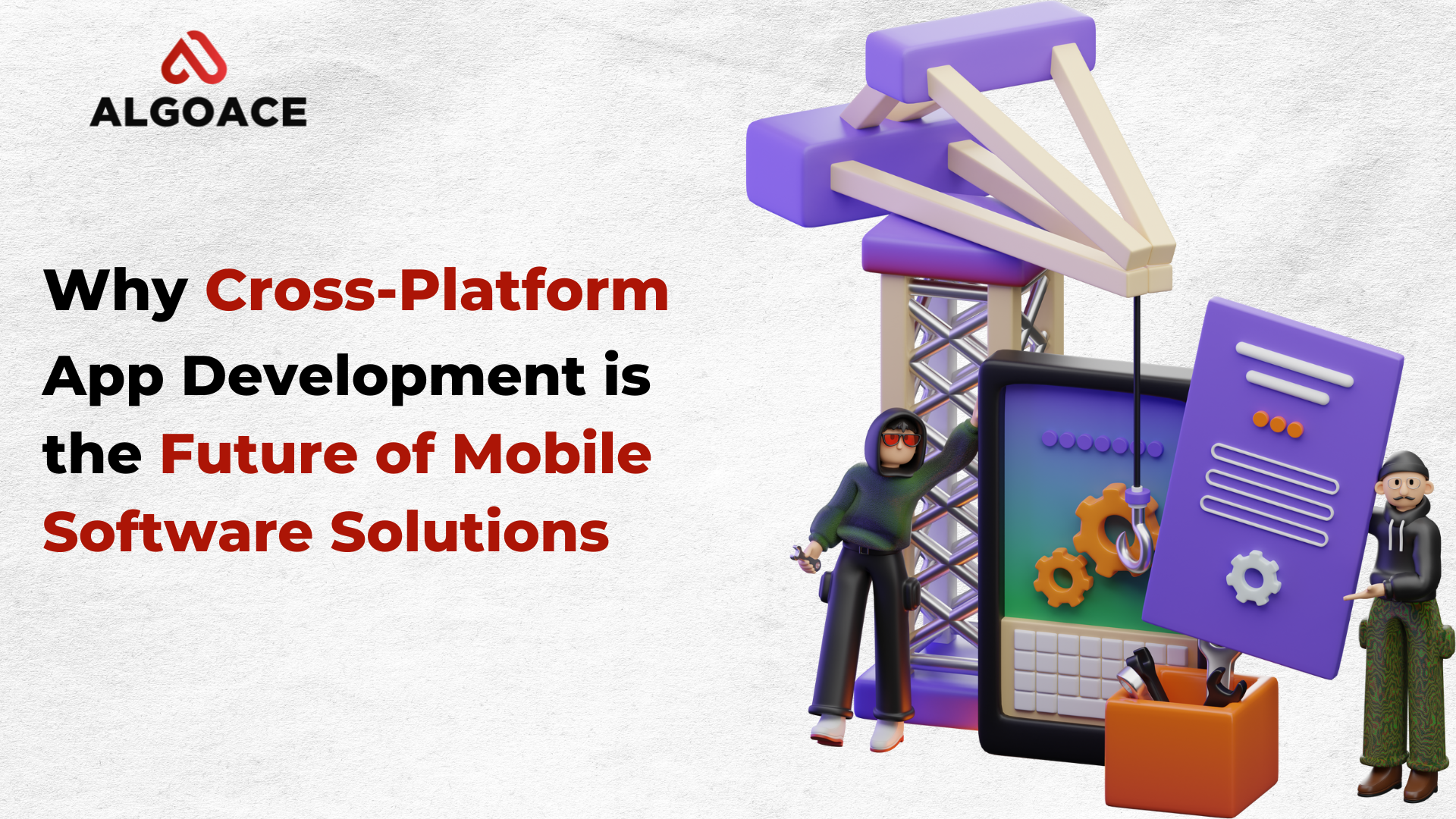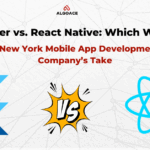
In the rapidly developing landscape of mobile technology, businesses are constantly looking for productive ways to convey hearty and engaging encounters to their clients. One approach that has gained significant traction is cross-platform app development. This technique allows designers to create applications that run seamlessly on numerous operating frameworks, for example, Android and iOS, using a single codebase. As the demand for mobile software solutions develops, cross-platform app development is arising as the fate of this industry. This article investigates why cross-platform app development is turning into the go-to answer for businesses, featuring its advantages, key patterns, and how it compares to traditional native app development.
The Rise of Cross-Platform App Development
Cross-platform app development alludes to the practice of building mobile applications that can operate on various operating frameworks using a single codebase. Dissimilar to native app development, which requires separate codebases for each platform, cross-platform development leverages instruments like React Native, Vacillate, and Xamarin to create apps that work across numerous conditions.
This approach has become increasingly popular because of its ability to lessen development time and expenses while maintaining a steady client experience across platforms. For businesses, especially those trying to maximize their reach without causing the significant expenses associated with native development, cross-platform app development offers a convincing alternative.
Benefits of Cross-Platform App Development
Cross-platform app development offers significant advantages, including cost productivity and faster opportunity to-market, making it an ideal decision for businesses aiming to reach a more extensive audience without sacrificing quality. By using a single codebase for various platforms, companies can convey predictable client encounters across Android, iOS, and more.
1. Cost Efficiency
One of the main advantages of cross-platform app development is cost effectiveness. Creating separate apps for Android and iOS can be costly, particularly for startups and small businesses. Cross-platform development allows businesses to create a single app that capabilities across numerous platforms, lessening the overall development cost.
Additionally, maintenance and updates are streamlined, as changes made to the codebase are reflected across all platforms. This saves cash as well as guarantees that clients on various platforms have a reliable encounter.
2. Faster Time-to-Market
In today’s cutthroat market, speed is crucial. Businesses need to launch their items rapidly to stay ahead of the opposition. Cross-platform app development enables faster chance to-market by allowing engineers to compose code once and send it across numerous platforms simultaneously.
This accelerated development process means that businesses can answer market demands and client feedback all the more rapidly, enhancing their ability to adapt to changing patterns and innovations.
3. Wider Audience Reach
With cross-platform app development, businesses can reach a broader audience. Instead of restricting their app to clients of a single platform, companies can target both Android and iOS clients all along. This comprehensive approach is particularly beneficial for businesses hoping to establish major areas of strength for an in the mobile market.
Reaching a more extensive audience isn’t just advantageous for client acquisition yet additionally for generating higher income. By catering to clients on various platforms, businesses can maximize their app’s potential and drive development.
4. Consistent User Experience
User experience (UX) is a critical factor in the progress of any mobile app. Cross-platform app development guarantees that users have a reliable encounter across all platforms. Whether a user is on an Android or iOS gadget, they will interact with the same interface, features, and functionality.
This consistency assists work with branding loyalty and trust, as users can depend on a uniform encounter regardless of the gadget they are using. It also works on the method involved with giving client care and investigating, as the app behaves similarly across platforms.
5. Easier Maintenance and Updates
Maintaining and updating mobile apps can be a complex and tedious interaction, especially while dealing with different codebases. Cross-platform app development improves on this interaction by centralizing the codebase. Engineers can push updates and bug fixes across all platforms simultaneously, guaranteeing that all users get the same enhancements at the same time.
This streamlined maintenance process saves time and assets as well as guarantees that the app remains fully informed regarding the latest features and security patches, enhancing the overall user experience.
Key Trends in Cross-Platform App Development
Key patterns in cross-platform app development are shaping the fate of mobile technology by integrating advanced features and enhancing development processes. These patterns are driving innovation, making cross-platform solutions all the more remarkable, productive, and user-accommodating.
1. Integration of Advanced Technologies
As technology keeps on advancing, cross-platform app development is incorporating advanced features like artificial knowledge (AI), machine learning (ML), and augmented reality (AR). These advancements are enabling businesses to create more sophisticated and interactive applications that cater to the requirements of present day users.
For instance, AI and ML can be utilized to personalize the user experience, while AR can create vivid encounters that engage users in new ways. By integrating these advances, businesses can stay ahead of the opposition and deal state of the art solutions to their clients.
2. Growing Popularity of Progressive Web Apps (PWAs)
Progressive Web Apps (PWAs) are another pattern shaping the eventual fate of cross-platform app development. PWAs join the best of web and mobile apps, offering a fast, reliable, and engaging user experience. They can be accessed through an internet browser yet capability like a native app, giving disconnected access, message pop-ups, and other advanced features.
PWAs are gaining popularity because they are easier to create and maintain than traditional mobile apps, while as yet conveying a top notch user experience. As additional businesses perceive the advantages of PWAs, they are probably going to turn into a critical part of cross-platform app development strategies.
3. Enhanced Developer Tools and Frameworks
The tools and frameworks available for cross-platform app development are continually improving, making it easier for engineers to create excellent applications. Frameworks like Shudder, React Native, and Xamarin are turning out to be all the more impressive, offering features that were already just available in native development conditions.
These advancements are lessening the gap between cross-platform and native app development, making it conceivable to create apps with near-native performance and functionality. As these apparatuses keep on advancing, the adoption of cross-platform development is supposed to increase.
Cross-Platform vs. Native App Development
While settling on cross-platform and native app development, businesses face a decision between broader reach and potentially lower costs versus enhanced performance and more profound integration with explicit platforms. Each approach offers particular advantages, making the choice crucial to the app’s prosperity.
1. Performance Considerations
One of the main arguments in favor of native app development is performance. Native apps are constructed specifically for a particular platform, allowing engineers to upgrade the app’s performance for that climate. This frequently brings about faster load times and smoother interactions.
Notwithstanding, cross-platform development has made significant steps in performance optimization. With the right instruments and frameworks, designers can create cross-platform apps that convey near-native performance, making them suitable for a large number of applications.
2. Access to Native Features
Another advantage of native app development is access to platform-explicit features. Native apps can easily integrate with the fundamental hardware and software, offering features like GPS, camera access, and pop-up messages.
Cross-platform development apparatuses are consistently working on in this regard, offering modules and APIs that give access to native features. While there may in any case be a few limitations, the gap is narrowing, and many cross-platform apps can now offer the same functionality as their native counterparts.
3. Development and Maintenance Costs
As referenced earlier, cross-platform app development is generally more practical than native development. This is particularly valid for businesses that need to help numerous platforms. By using a single codebase, companies can diminish development and maintenance costs while as yet conveying an excellent app experience.
Native development, then again, requires separate codebases for each platform, leading to greater expenses and longer development times. For businesses with restricted assets, cross-platform development offers a more practical arrangement.
The Role of a Software Development Company in Cross-Platform App Development
With regards to executing an effective cross-platform app development strategy, partnering with a reputable software development company is crucial. A talented development team can assist businesses with navigating the intricacies of cross-platform development, guaranteeing that the final item meets their goals and surpasses user expectations.
A software development company with experience in cross-platform app development can give valuable bits of knowledge into the latest patterns, best practices, and devices available. They can also assist businesses with avoiding normal pitfalls and convey a great app that performs well on all platforms.
How Cross-Platform App Development Enhances Top-Tier Custom Website Development Services
Cross-platform app development isn’t just about mobile apps; it also plays a significant job in enhancing top-level custom site development administrations. By adopting a cross-platform approach, businesses can guarantee that their sites are enhanced for mobile gadgets, giving a seamless user experience across all platforms.
For example, integrating cross-platform app development with top-level custom site development administrations can lead to the creation of Progressive Web Apps (PWAs), which offer the advantages of both web and mobile apps. This combination allows businesses to give users a reliable encounter, whether they are accessing the site on a work area, tablet, or smartphone.
Conclusion
Cross-platform app development is rapidly turning into the fate of mobile software solutions. Its ability to decrease costs, accelerate time-to-market, and convey a predictable user experience across platforms makes it an attractive choice for businesses, everything being equal. As technology keeps on advancing, cross-platform development will probably turn out to be significantly more remarkable, enabling businesses to create sophisticated, elite performance apps that address the issues of present day users.
By partnering with a talented software development company and leveraging top-level custom site development administrations, businesses can take full advantage of cross-platform app development to drive development, enhance user engagement, and stay ahead of the opposition.





0 Comments